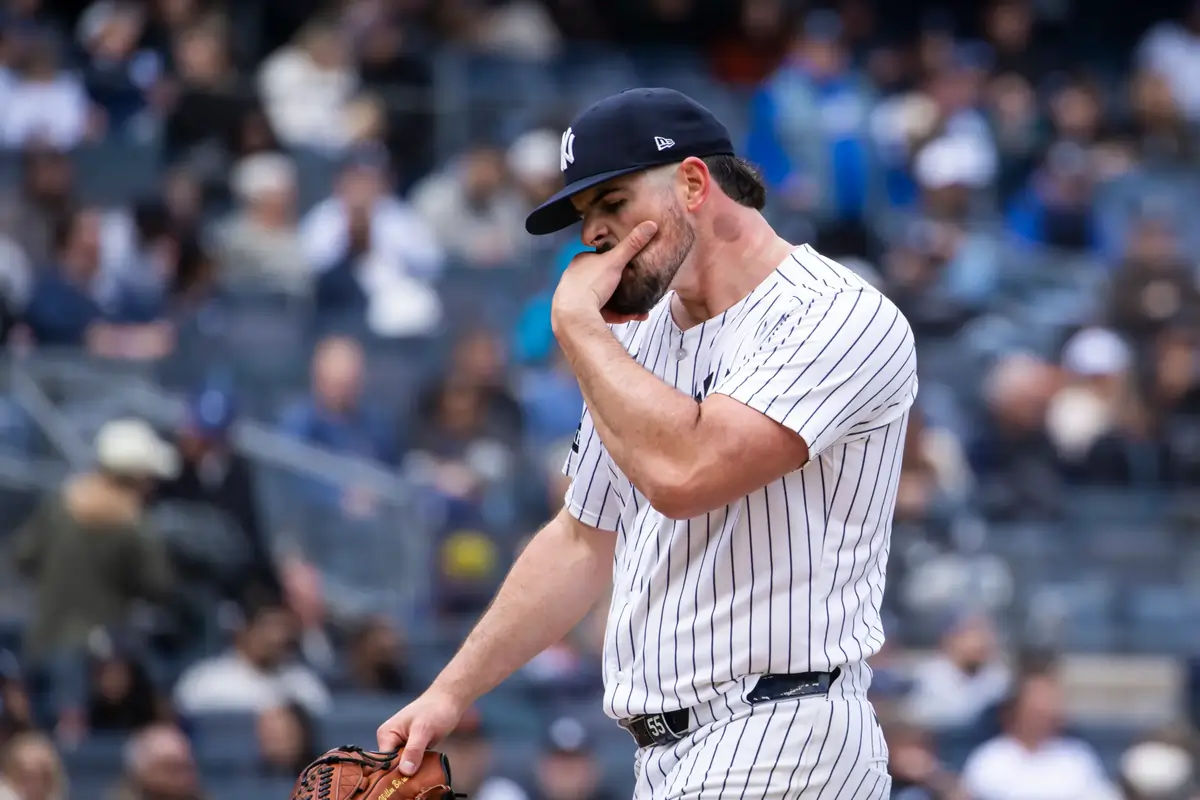The New York Yankees’ decision to let go of infielder Gleyber Torres and right-handed reliever Tommy Kahnle after the World Series run has been a huge win for the Detroit Tigers. Both players signed one-year deals with their new team during free agency and have become key pieces for the AL Central leaders.
Gleyber Torres: A New Beginning in Detroit
After seven years in pinstripes, Gleyber Torres signed a $15 million deal to join the Tigers for 2025. So far, so good.
Torres has been awesome at the plate and in the field. As of this writing, he’s hitting .323/.379/.462 and can do it all. He’s been a stabilizing force up the middle and his glove work and leadership has been impressive.
For Torres, this fresh start in Detroit seems to have rekindled his game. After the Yankees didn’t re-sign him (likely because of Jazz Chisolm Jr. who they acquired at the trade deadline last year) the Tigers swooped in and got a steal.
Tommy Kahnle: The Tigers’ New Closer
On the mound, Tommy Kahnle has slid into the role of closer for the Tigers. The 35 year old signed for $7.75 million and has already paid dividends. In 6 games he has a 1.29 ERA and 3 saves.
He’s been lights out, as evidenced by this:
Kahnle’s experience in big situations from his time with the Yankees has translated perfectly to his new team. With the Tigers young roster needing guidance, Kahnle’s calm and playoff experience has been huge in the bullpen.
Why the Yankees Let Them Go
While the Yankees decision to non-tender Torres and Kahnle may seem surprising, it wasn’t without reason. Jazz Chisolm Jr. filled the void left by Torres and the Yankees offseason bullpen overhaul (including the addition of Devin Williams) made Kahnle expendable in Brian Cashman’s eyes.
But losing two key contributors from last year’s playoff run was going to leave some fans wondering what could have been. For now though, both teams are happy with their decisions.
Detroit’s Big Bets Are Paying Off
GM Jeff Greenberg knew the Tigers needed veteran leadership to go with their young core after coming up one game short of the ALCS last year. By signing Torres and Kahnle, Greenberg filled two big holes—middle infield and late inning relief—on team friendly deals.
So far so good. The Tigers are in first place in the AL Central thanks in large part to the two former Yankees.
Playoff Matchup Looms?
With the Yankees and Tigers in their divisions in first place, a playoff matchup is looking more and more likely. If these two teams meet in October, it will be fun to see how Torres and Kahnle do against their old team. Will they prove their worth even more or will the Yankees show they made the right call in letting them go?
Only time will tell but one thing is for sure, both players are thriving in their new roles and their impact on the Tigers can’t be overstated.









